Mozambique: Mozal awards 150 scholarships for university, technical and vocational education
Unango: The attack that stopped GDR aid to Mozambique
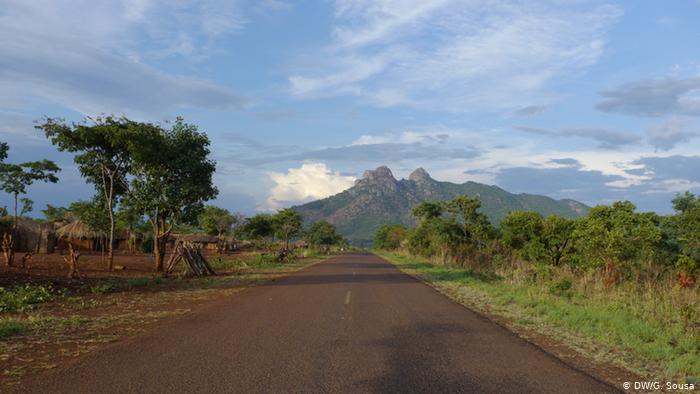
Unango, in Niassa province, northern Mozambique
- Mozambique was the main beneficiary of East German development aid, but an attack in Unango, Niassa province, on December 6, 1984, put a stop to one of the largest agricultural projects in Africa.
As a socialist “sister country”, Mozambique was the main beneficiary of development aid from the German Democratic Republic (GDR). In the early 1980s, the East German Government started a mega-project to modernise agriculture in Mozambique. Farms of 120,000 hectares were planned in various parts of the country, but an attack led to the collapse of the project.
The attack took place on December 6, 1984, in the northern province of Niassa. More than a dozen GDR experts worked in the village of Unango, helping to cultivate 1,500 hectares. They lived in the provincial capital, Lichinga, and travelled 60 km every day to the fields in Unango, in a minibus or in a van.
During one of these trips, they were attacked by armed men. It was the worst attack on GDR development aid officials in Mozambique. Eight GDR citizens, a Yugoslav worker and five Mozambicans died. To this day, it is unclear who carried out the attack.
Manfred Grunewald was one of the so-called “co-workers” sent by the GDR to Unango. He was in Maputo when he received the news of the attack as he was about to fly home.
DW Africa: What exactly happened that December morning, when this column of GDR experts accompanied by the Mozambican Army moved from Lichinga, where the experts lived, to Unango, where they worked?
Manfred Grunewald (MG): Three months before the attack, our trips to the agricultural production (farms) started to be escorted because, contrary to what happened in the past, people from the Renamo [Mozambican National Resistance] appeared to attack the population. Renamo did not aim at strategic military targets, but it attacked the population very intensely – entire villages were empty. It happened on this route, in which two villages were affected. Our escort consisted of Army soldiers and also “former combatants”, soldiers who had helped to liberate the country from the north with Samora Machel [the first President of Mozambique]. They had military status, but of course they had very little training.
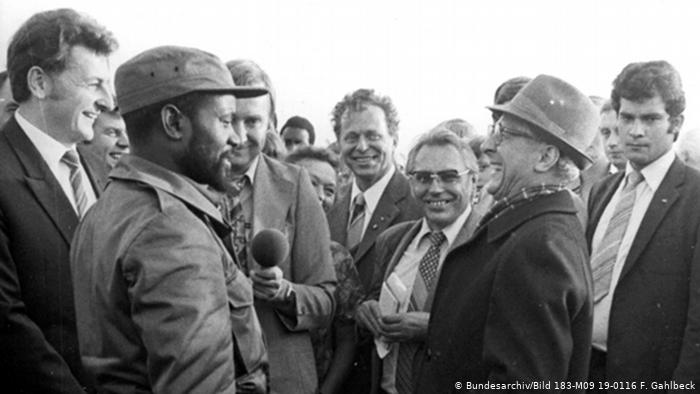
DW Africa: What exactly happened?
MG: The road we were on was a tarred road, dating from the time of the Portuguese, that goes north, towards Metangula, that is, towards Lake Niassa or Tanzania. We used this road every day. First, we went on minibuses, when we still had gasoline. Later on, without enough gas and having to use diesel, we only had the van. We sat in the van and went to Unango every day. Many Mozambicans went with us and columns were made, which went to Unango, with escort, on the way and back. And that morning, (I was already in Maputo) they were probably waiting for the column to pass. It was only halfway, in Bacarilla, that the guards joined the column. On the way there, from Lichinga, there were no problems. But 20 km later, that is, 10 km from Unango, there was a strong machine-gun attack on completely unarmed people.
The guards, who had little training, should have protected us. But a soldier knows that, when he is attacked, he has to retreat to protect himself. This was later interpreted in the MfS [Ministry of State Security, GDR secret service] reports as “capitulatory behaviour” by the military. I don’t see things that way. A completely wrong idea is created of what happens when things are dictated into Secret Service files 1,800 kilometres away from the site, in Maputo. How many superficial assessments were made at the time!
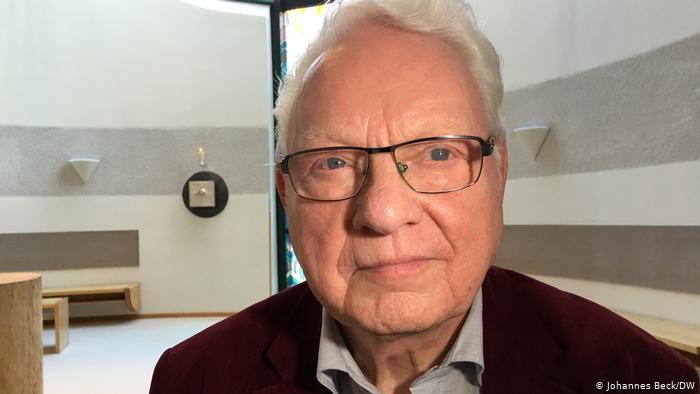
DW Africa: So, none of the guards were injured. Did only the GDR experts die?
MG: No, not quite. Seven Germans were killed at the scene, one was slightly injured and another was seriously injured in the head. There was also a Yugoslav [cooperative] and five Mozambicans, including two soldiers, who died. It is not true that the military disappeared or that they did not fire. On the contrary. They were killed because they resisted.
We Europeans – the Yugoslavs and us German co-workers – had no weapons, of course. Never has a GDR citizen carried a gun in Mozambique, at least not where I was. And even the Mozambicans who were killed, including a PhD student who had just arrived from the USA and who was in my department for just three weeks, were shot, as was the driver with whom we organised most of the vegetable purchases – corn, firewood, charcoal, etc. He was the most afraid of Renamo and was the first to be shot. Their names are, like those of others, on a small monument that we built 25 years later near Lichinga, at the site of the attack, in memory of the dead.
DW Africa: Did both of the injured survive?
MG: The seriously injured man was taken to Maputo in a small plane and was operated on. He succumbed to his injuries ten days later. In his case, it was suspected that he was hit by a dum-dum bullet. This means that projectiles were used that today are not authorised in war and that at that time were not allowed either. The specialist died and his body was repatriated to the GDR. The person who was wounded by a bullet in the leg travelled home with us. He survived and was able to continue to perform his profession. The problem is that almost everyone was traumatised.
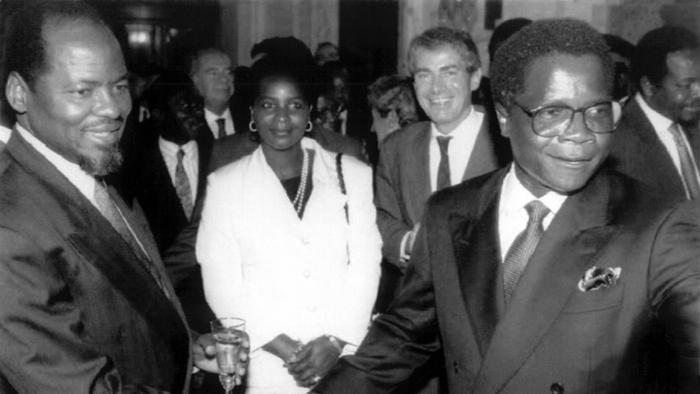
DW Africa: So, in total, there were eight GDR experts who died, one Yugoslav expert and five Mozambicans. These other dead are rarely mentioned in the media reports here in Germany. What happened in the following days? Did the project continue or did everyone have to return?
MG: We fear that there might even have been more deaths, but we have not been able to find out if this is true. This terrorist attack that resulted in the death of so many people also resulted in the closure of this project overnight. There were snipers in Unango who did not even allow the machines and other equipment to be removed from the scene. Later, the Army had to go there and protect the machines that had been there since the days of the GDR, so that they could be transferred to another location. Some workers even managed to move to another farm. In all, there were more than 500 jobsin Unango. That means, roughly, that more than 2,000 people lived on what we did there. Not only did they receive money, they also learned discipline from us. They learned to achieve good distribution even when there are constraints. They also learned to work in the office, on the tractor, in the workshop, everywhere. All of this collapsed from one moment to the next, because snipers were suspected of being present, something that would scare off anyone who wanted to work there.
DW Africa: So, did the Government in Berlin decide to remove all GDR personnel from this project?
MG: All agricultural development which had been started with the GDR collapsed.
DW Africa: Not only in Unango?
MG: Not only in Unango. But the Unango project was the most developed and the most successful. That was what the Mozambican experts told me when I visited ten years ago, when we erected the monument. And that is probably why Unango was a target. Sometimes we appeared in the newspapers, both in Germany and in Mozambique. And that was frowned upon by the opponents. But, to this day, we don’t know who the real snipers were.
DW Africa: So you are not even sure if it was a Renamo attack?
MG: We are not sure about that. Ten years ago, we started making a short film for MDR [Mitteldeutscher Rundfunk, a German public broadcaster] because we haven’t addressed this issue in two decades. For 20 years, we only talked about what happened among ourselves, people from the Lichinga-Unango group, who kept in touch. Together, we also underwent therapy, because otherwise we would not have been able to talk about those difficult days and times in our lives. There was also a political change with the end of the GDR [in 1989]. Afterwards, each had to fight for their job and everything.
DW Africa: After your return, did you receive help to deal with the trauma, or the victims’ relatives?
MG: As far as I know, widows were only entitled to a few days off when they returned. Funerals were paid for, as were death announcements in local newspapers. That was allowed. Help was also provided to a widow who had to go elsewhere because she needed a change in her life. There was support. There were also survivors’ pensions for orphaned children and widow’s pensions – these were things that were provided for in the GDR laws. But there was no special support, either before or after the end of the GDR.
The attack was not even investigated. The state did nothing. Neither the GDR, the Federal Republic of Germany, nor the prosecutor’s office tried to clarify this massacre, this terrorist attack.
I am a “son of the GDR”. I received a good education, even though my parents had eight children. We all received a very good education and I was lucky to be able to travel abroad. That was, in fact, our great ambition. Of course, we were interested in this treaty [of cooperation and friendship between the GDR and Mozambique], but we were especially interested in the possibility of going abroad. There we managed to show and apply what we learned in training courses on tropical agriculture. And we spoke Portuguese from the first day, because we had taken courses near Leipzig, where we had been prepared.
DW Africa: When you returned to the GDR after these terrible events and no one was interested, did you not feel alone?
MG: What really disappointed me, in fact, was that society has harnessed little or nothing of what has been done there. Well, friends and family or even co-workers were always interested.
Over the years, more than 1,000 experts have been in Mozambique and have helped in several specialised areas. The group of farmers demonstrated that it is possible to produce something even under those conditions, in the dry and rainy season, despite the characteristics of the soil and the natural conditions of northern Mozambique, at an altitude of 1,000 metres, in Lichinga. Mozambicans do not need to ask Europe for food.
DW Africa: What would you like to see done by the two governments, the German and the Mozambican, so that this attack by Unango is finally cleared up?
MG: First of all, I would like Germany not to stick to technical-legal procedures, but also to think about publicly acknowledging the deeds of the experts at that time. Second, is it possible to resolve this issue? Who was behind the attack on our group? In a short attack, they were all shot and left behind – those people paid with their lives for their good cause.
But there is no one in our group who feels hatred or dislike for the Mozambican people. On the contrary, we know that there were elements that wanted to disrupt development. When there is war and terror, humanity cannot develop normally. But there was an opportunity in Niassa, either with socialism or with capitalism: we could have produced enough food to put on the market. We already had two stores selling vegetables, corn and charcoal. So, we were building something that shouldn’t have been destroyed. This is what I attribute to the Mozambican elements that caused this destruction. Ten years ago there was a film by MDR [German public broadcaster], in which we were involved. At the time, a representative from Renamo in Lichinga said: “A lot happens in the context of the war. But we were not the ones who carried out this attack.”
Mozambique cannot retreat to that position and just say that there is an amnesty, that it will no longer investigate, that it is no longer interested. We were Germans, but we are entitled to an investigation in Mozambique, even if these people have long since died. Children have become adults. The dead now have grandchildren and they want to know what happened at that time.


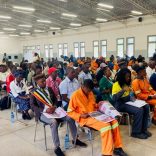
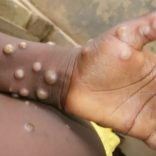
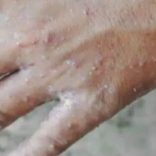

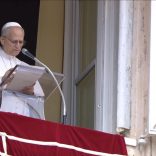
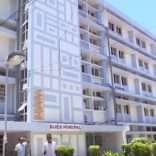




Leave a Reply
Be the First to Comment!
You must be logged in to post a comment.
You must be logged in to post a comment.